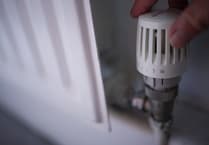AS the cold weather sets in, Devon and Somerset Fire and Rescue service is reminding people to make sure chimneys are as safe and secure as possible, especially when lighting up fires that haven't been used for a while.
The advice comes after an increase in chimney fires across Devon over the past couple of weeks.
Fire investigation officer Mike Burroughs said: 'With the nights being quite old, people have naturally been warming up their homes by lighting the traditional home fire, but without proper maintenance a chimney can become dangerous.
'To keep yourself and your family safe from fire, you should take care to have your chimney swept regularly, depending on what fuel you burn. If the worst should happen, a smoke alarm can give you the extra time you need to escape in a house fire — make sure you test yours regularly.'
The service warns people in thatched properties to be extra careful.
'Fire in a thatched roof is difficult to detect and once started is almost impossible to control. Once a fire has taken hold within a roof it will spread rapidly, due to the nature of how thatch burns and detection is often too late.'
The service said that many of the thatch fires are chimney-related. Modern enclosed solid fuel appliances are designed to burn efficiently and cleanly, often flues pass through old chimneys, where there is only a four-inch thickness of brick, which makes the thatch especially vulnerable to the risk of heat build up and eventually combustion at a point between the brick and the thatch.
Chimneys need to be dirt free to allow the free passage of dangerous combustion gasses, so regular cleaning will remove soot and creosote, and help prevent dangerous chimney fires.
The service is asking people to make sure chimneys are swept regularly by a registered chimney sweep.
Growing in popularity are wood burning stoves and they also need to be checked regularly to ensure they are safe and clean. Ensure wood burners are installed and maintained in accordance with the manufacturers' instructions.
For more information visit the website at http://www.dsfire.gov.uk/yoursafety/safetyinthehome/chimneyfiresafety">www.dsfire.gov.uk/yoursafety/safetyinthehome/chimneyfiresafety




Comments
This article has no comments yet. Be the first to leave a comment.